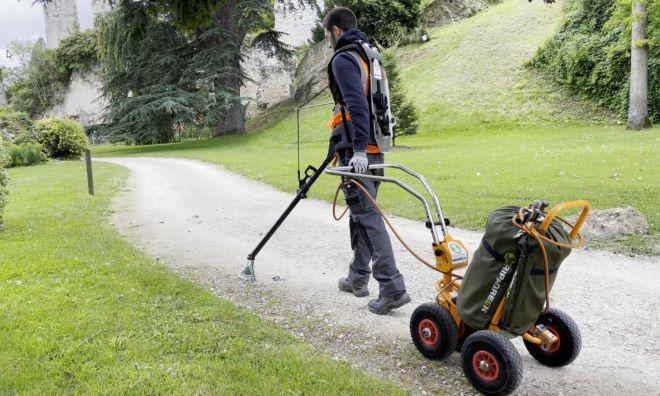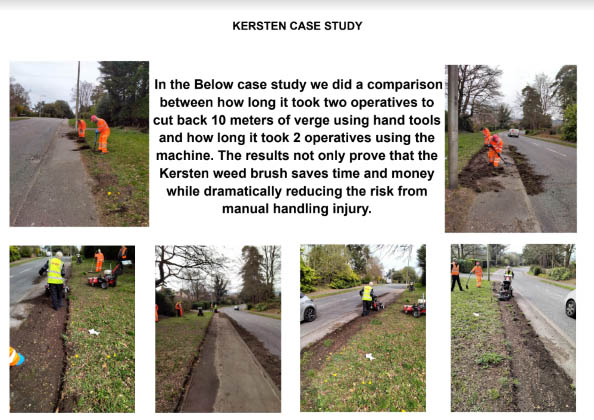Stop Using Weed Killer to Paper Over Cracks in Our Pavements
A recent study in Scotland showed that the most common use of weed killer for councils is on hard surfaces. This should be the easiest place to reduce herbicide use.
Some councils, such as the Isle of Wight, have reversed decisions to stop using glyphosate after trying slow manual weed removal and finding that perennial weeds grow back quickly in the surfaces.. (according to this article) https://uk.finance.yahoo.com/news/pavement-crack-good-reason-return-050100824.html
I have several things to say about this.
Firstly;
We don't need to use weedkiller on hard surfaces.
Let me clarify...
If you neglect all weed prevention and maintenance on hard surfaces for a number of years, allowing a proliferation of soil build up in cracks, letting these become so deep and filled with soil after many freeze thaw cycles that perennials can grow rampant... then yes, you will be more likely to need weed killer to deal with these weeds on hard surfaces.
If however, you implement weed prevention to reduce detritus build up on the surface, keep the surface swept and repair cracks in the pavement, then you can avoid using weed killer all together.
It's very simple.
People are comparing rotten apples with rotten oranges, and saying that rotten apples taste a little better; when they should be rectifying these mistakes and at minimum comparing fresh apples with fresh oranges.
Yes,
1.Avoiding maintenance of the surface and then using weed killer to paper over the cracks will lead to longer lasting surfaces than...
2.Avoiding maintenance of the surface and then using other methods to remove the weeds.
However,
3.Carrying out weed prevention and surface maintenance in the first place and then treating weeds with other methods will lead to longer lasting surfaces than...
4.Avoiding maintenance of the surface and then using weed killer to paper over the cracks
The perennials are taking advantage of our lack of maintenance. If we maintained the surfaces in the first place and sealed the cracks, they would not have the access to soil that they need to grow in the first place. If you need research to back up this claim, then please refer to this previous article;
Timings of treatments are critical to alternative methods of weed control
We use weed killer on very established plants in order to hit very broad leaves to allow the greatest effect.
When we leave it this late with other methods, the same logic works to our disadvantage. Leaving it this late allows roots and stems to build great reserves of energy that they can use to regrow, because thermal and mechanical methods starve the plant in a very different way to glyphosate.
They rely on depleting the plants access to energy, by preventing it from photosynthesising.
Therefore, the earlier in a plant's life we can kill the plant the better.
In fact - heat works at its best when weeds are at the stage of germination.
We have come up against many councils running trials of heat treatments in late May, or even June without having done anything earlier in the year.
This is far too late.

Mechanical weed removal is far more effective (on hard surfaces) than manual removal.
Finally - having sold extremely capable equipment for surface maintenance for many years I can tell you categorically that a sweeper or weed brush on our machines will get a surface much cleaner, in much less time than a manual approach. This will result in less future applications and less expense to rid the pavements of weeds than manual treatments because the cleaner surface is less habitable to weeds, not to mention the lower initial outlay on labour, which quickly outweighs the cost of the equipment.
See this article as an example from work we did with Veolia;

No comments yet. Login to start a new discussion Start a new discussion